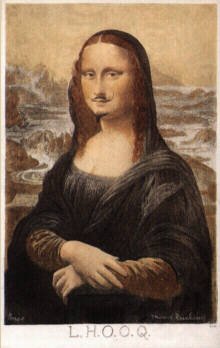PETER BENENSON: Biography
PETER BENENSON
Born 31 July 1921
Background information on the founder of Amnesty International
Countless people facing persecution have reason to thank British lawyer Peter Benenson, the founder of Amnesty International. It was his inspiration in the1960s that launched a worldwide citizens’ movement to expose and confront government injustice.His flair for controversy emerged early on, when his complaint to the school headmaster about the poor quality of the school’s food prompted a letter to his mother warning of her son's "revolutionary tendencies". At age 16, he launched his first campaign: to get school support for the Spanish Relief Committee which was helping orphans in the Spanish civil war. He himself "adopted" one of the babies, helping to pay for its support.He then turned his attention to the plight of Jews who were fleeing Hitler’s Germany. Despite some opposition, he got his school friends and their families to raise £4,000 to bring two young German Jews to Britain, probably saving their lives. He studied for a wartime degree in history for one year, at Balliol College, Oxford University, where he is now an Honorary Fellow, in recognition of his founding of Amnesty International. Benenson joined the British army, where he worked in the Ministry of Information press office. He then joined Bletchley, the centre famous for code breaking. He left the forces to become a practicing lawyer, taking his bar exams after the war was over. He also joined the Labour Party, becoming a leading member of the Society of Labour Lawyers.In the early 1950s, the Trades Union Congress sent him to Spain to observe trials of trade unionists. Benenson was appalled by what he saw and drew up a list of complaints with which he confronted the trial judge. The trials ended with acquittals, a rarity in fascist Spain.It was through such activities that he began to acquire an international reputation. In Cyprus he helped and advised Greek Cypriot lawyers whose clients had fallen foul of their British rulers. He persuaded Labour, Liberal and Conservative lawyers to send observers to Hungary during the 1956 uprising and ensuing trials, and South Africa where a major "treason trial" was due to take place. The relative success of these schemes led to the formation of the organization "Justice", a UK-based legal and human rights organization.It was this constant activity that laid the groundwork for his main endeavor, the 1961 launching of Amnesty International. Benenson was outraged after reading a news item about the arrest and imprisonment of two students in a Portuguese café who had raised their glasses in a toast to liberty.With the publication of a front page appeal in The Observer newspaper entitled "The Forgotten Prisoners", Amnesty International was born. The term "prisoner of conscience" soon became common currency and the movement’s logo, a candle surrounded by barbed wire, a worldwide symbol of hope and freedom.For the first few years Mr Benenson worked tirelessly for the new, burgeoning movement, supplying much of the vital financial resources, going on research missions to various countries, and playing a part in all areas of the organization."At that time we were still putting our toes in the water and learning as we went on," Mr Benenson later reflected. "We tried every technique of publicity and we were very grateful to the widespread help of journalists and television crews throughout the world who not only sent us information about the names of prisoners but also, whenever they could, gave space to stories about prisoners. It's the publicity function of Amnesty that I think has made its name so widely known, not only to readers in the world, but to governments -- and that’s what matters."Peter Benenson never gave up campaigning for a better world. He founded a society for people with coeliac disease -- a condition from which he suffered himself. In the 1980s he became the chair of the newly created Association of Christians Against Torture, and in the early 1990s he organized help for the orphans of Ceaucescu’s Romania.His passion was never far below the surface. At a ceremony outside the church of St. Martin’s in the Fields in London on the 25th anniversary of Amnesty International. He lit a symbolic candle near the spot where he first had the idea of an international human rights campaign. With the words which have since found themselves on posters, T-shirts and postcards in dozens of languages all over the world, he said:"The candle burns not for us, but for all those whom we failed to rescue from prisons, who were shot on the way to prison, who were tortured, who were kidnapped, who ‘disappeared’. That’s what the candle is for."
Public Document****************************************For more information please call Amnesty International's press office in London, UK, on +44 20 7413 5566Amnesty International, 1 Easton St., London WC1X 0DW. web: http://www.amnesty.org/For latest human rights news view http://news.amnesty.org/
Public Document****************************************For more information please call Amnesty International's press office in London, UK, on +44 20 7413 5566Amnesty International, 1 Easton St., London WC1X 0DW. web: http://www.amnesty.org/For latest human rights news view http://news.amnesty.org/


0 Comments:
Posta un commento
<< Home